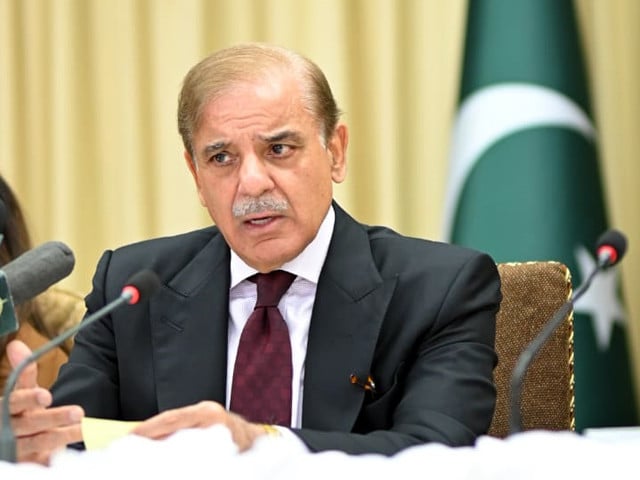ISLAMABAD: Prime Minister Shehbaz Sharif has called on the international community to urgently rethink the global climate finance system to help vulnerable, developing countries achieve their climate goals. Speaking at a high-level climate finance roundtable during COP29—an international climate forum held under the auspices of the United Nations Framework Convention on Climate Change (UNFCCC)—the Prime Minister highlighted that developing nations may require up to $6.8 trillion by 2030 to meet their Nationally Determined Contributions (NDCs).
During his address, PM Shehbaz stressed the pressing need to overhaul the current international financial architecture to ensure that no nation is left behind in the global climate response. He emphasized that the time had come to move beyond empty promises and commitments that have not resulted in substantial progress, pointing out that the gaps in climate financing were growing wider with each passing year.
“We stand at a pivotal moment where the global climate finance framework must be redefined to meet the needs of the most vulnerable nations. Despite repeated pledges, the financing gaps are widening, creating significant barriers to achieving the objectives of the UNFCCC. We must act now to provide both the resilience and ambition required to confront climate change,” the Prime Minister said.
He noted that developing countries are struggling to fulfill their NDCs and that international climate finance must become more responsive, equitable, and adequate. PM Shehbaz called on donor nations to honor their commitment to provide 0.7% of their Gross National Income (GNI) in development assistance and urged the capitalization of existing climate funds to better address global climate challenges.
Highlighting the inadequacy of the $100 billion climate finance pledge made at COP-15, which has only amounted to $160 billion to date, PM Shehbaz pointed out that a large portion of this funding is in the form of loans, further exacerbating the debt burdens of developing nations. He referred to this trend as a potential “death trap” for these countries, driving them deeper into debt without solving the fundamental issues of climate resilience.
Pakistan, which has recently experienced devastating floods, understands the plight of other vulnerable countries. PM Shehbaz stressed the need for stronger, more equitable climate finance mechanisms within the UNFCCC framework, calling for increased transparency and coordination in how climate finance is allocated and monitored.
He proposed the establishment of a mechanism to track unfulfilled climate finance pledges and to measure the contributions of major historic emitters in relation to their responsibilities for both mitigation and adaptation efforts. Additionally, he advocated for non-debt financing solutions to ensure that developing countries can fund their climate initiatives without the added burden of accumulating debt.
The Prime Minister also addressed the challenges developing nations face in transitioning to clean energy. He called for preferential technical assistance and financing to support these countries in their efforts to transition to sustainable energy systems.
At the roundtable, President Emomali Rahmon of Tajikistan and President Sadyr Nurgojo uulu Japarov of Kyrgyzstan echoed the need for a collective, coordinated global response to climate change, emphasizing that the responsibility for financing climate action should align with historical emissions. Both leaders expressed support for reforming the international climate finance system to ensure that vulnerable countries receive the support they need to address the impacts of climate change.
Azerbaijan’s Foreign Minister Jeyhun Bayramov also commended Pakistan’s initiative, noting that the impacts of climate change are felt worldwide, with devastating events such as hurricanes, floods, and wildfires becoming increasingly common. He highlighted Pakistan’s leadership role in advocating for a loss and damage fund at COP27 in Sharm El-Sheikh, which has become a critical component of the international climate finance framework.
As COP29 progresses, the call for a redefined climate finance system is gaining momentum. Developing countries, alongside their international partners, are pressing for a financial architecture that is equitable, transparent, and sufficient to tackle the climate crisis and protect future generations.




